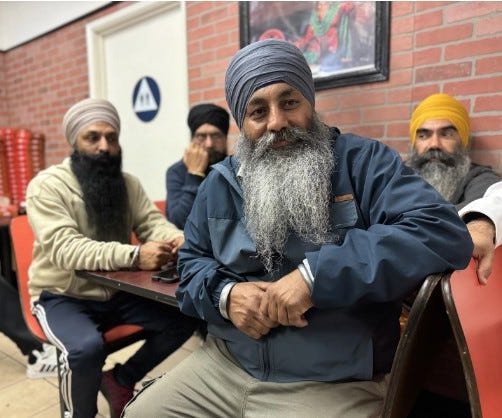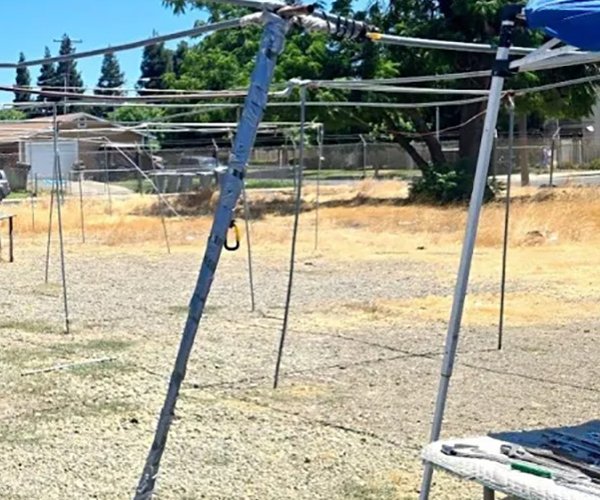Californians throughout the state will head to the polls next week as part of Super Tuesday to cast their votes in the primary election, and locally, there are plenty of decisions for voters to make.
Super Tuesday refers to the Tuesday in a presidential election year when the largest number of states and territories hold a presidential preference primary or caucus. This year, Super Tuesday will be held March 3. California has joined the 14 other jurisdictions holding primary contests that day, following a bill signed in 2017 by former Gov. Jerry Brown which moved the state’s 2020 primary from June to March — a move meant to increase the influence of the country’s most-populous state in deciding presidential candidates. By the time California voters made their decisions at the ballot box in June 2016, Donald Trump and Hillary Clinton were already the presumptive nominees for their respective parties.
With both California and Texas holding their primaries on Super Tuesday this year, approximately 40 percent of the U.S. population has a primary event on March 3.
While voters throughout California now have more of a say in the presidential selection process, there are also a myriad of state and local races Turlock voters will help decide.
A hot topic on the mind of many voters is the statewide bond measure Proposition 13, which would borrow $15 billion to improve school buildings across California — $9 billion for public K-12 schools and another $6 billion for colleges and universities, meant to be used for renovation, repair and new construction as necessary.
The Prop 13 on the 2020 ballot has nothing to do with the reform of the original property tax, Prop 13, passed by voters in 1978 to cap property taxes.
There are plenty of arguments both for and against the bond. Education groups say the state’s public school buildings are in terrible condition and renovations are much-needed, from poor air and water quality and contamination to potentially toxic substances on school grounds. Though California currently has a surplus budget that could contribute to upgrades, proponents of Prop 13 argue outside investment is needed to cover costs.
The Turlock Unified School District Board of Trustees passed a resolution in support of Prop 13 at their Jan. 21 meeting. In a Facebook post, TUSD tried to clear up any confusion voters may have about the bond.
“The 2020 #Prop13SchoolBond does not change any property taxes. That said, it will save Californians money, since the state can borrow money at a lower interest rate than individual school districts can,” TUSD said.
On the other hand, the Howard Jarvis Taxpayers Association complains that the state’s expansive surplus means a new bond shouldn’t be necessary. Bond opponents also say the interest on loans is higher than it’s worth, writing Prop 13 off as a tax hike that will create even more debt for local school districts.
HJTA President Jon Coupal wrote in an opinion piece for EdSource that the Legislative Analyst’s Office estimates Prop 13 will cost taxpayers $740 million per year for 35 years.
“A $15 billion bond measure that also raises local debt caps and provides favors for unions and developers is unnecessary and unwise. At a time when the state is facing a housing affordability crisis, this measure would raise property taxes, a cost that in many cases will be passed through to tenants as higher rents as well as burdening homeowners with higher tax bills. Voters should just say no,” Coupal wrote.
According to Assemblyman Heath Flora’s Chief of Staff Dylan Gray, Flora’s state office and any others are receiving calls from constituents who think the 2020 Prop 13 is somehow tied to the Prop 13 passed in 1978.
“Our office is simply instructing folks to consult their Voter Pamphlet or contact their county Registrar of Voters or the CA Secretary of State’s office if they have ballot-related questions,” Gray said.
In addition to Prop 13, Turlock voters will also decide local races for office.
Incumbent Congressman Josh Harder will fight to keep his seat for a second term, though there are some who would like to take it. The Democrat will face two from his own party, robotics engineer Ryan Blevins of Oakdale and U.S. Navy veteran Michael Barkley from Manteca, as well as three Republican challengers — veterinarian and former Turlock City Councilman Ted Howze, San Joaquin County Supervisor Bob Elliot and California Strawberry Commission Regulatory Affairs Manager Marla Livengood.
In addition, Flora is seeking a third term in District 12 and is running against Lathrop City Councilman, Alameda County support technician and Evangelical pastor Paul Akinjo.
Turlock voters will also have the chance to decide new Stanislaus County Superior Court Judges in March, as three are set to retire. There will be a three-way race for Superior Court Office No. 5 between Deputy District Attorney John R. Mayne, retired prosecutor Jared Carillo and Superior Court Commissioner Kenneth Hara, and another between Chief Deputy District Attorney Annette Rees, attorney Daniel Johnson and former Deputy District Attorney Samual Getrich for Office No. 6.
Voters both Republican and Democrat will also decide their party’s local delegates.
California’s primary election will take place on Tuesday. Polls open at 7 a.m. and close at 8 p.m. Personally-delivered ballots must be delivered by the close of polls at 8 p.m. March 3, and mailed ballots must be postmarked on or before March 3 and received no later than March 6.
To find your polling place, visit www.stanvote.com or call 209-525-5200. Polling places have new voting machines this year that utilize touch screens, and Turlockers can also visit a new satellite office in town to vote, register or find their polling place at 1301 W. Main St.








